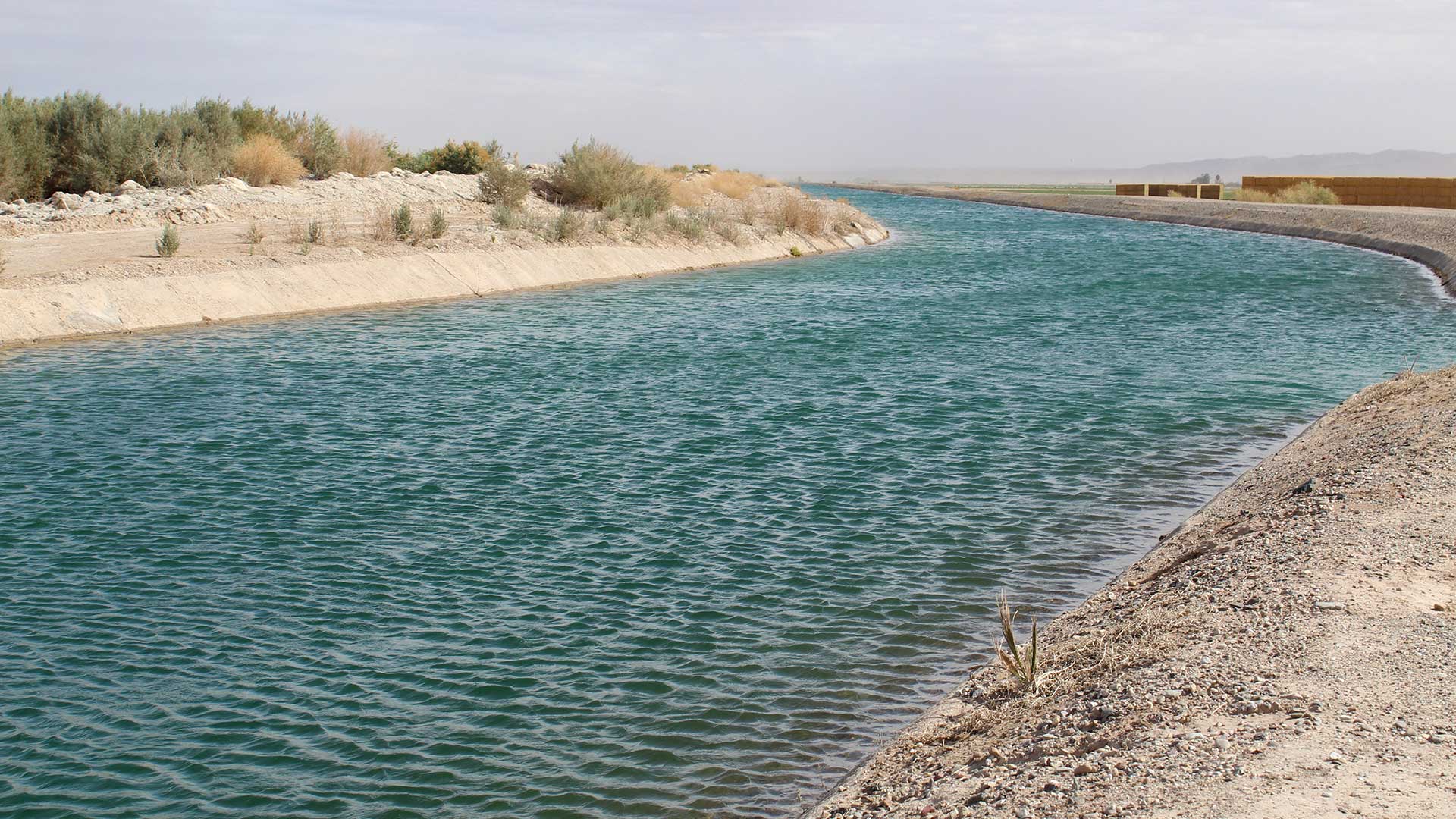 A canal carries Colorado River water to farmland near Poston, Arizona, owned and operated by the Colorado River Indian Tribes, a key player in Arizona's Drought Contingency Plan.
A canal carries Colorado River water to farmland near Poston, Arizona, owned and operated by the Colorado River Indian Tribes, a key player in Arizona's Drought Contingency Plan.
The chairwoman of the Colorado River Indian Tribes is in Washington, D.C., this week to testify for a bill that would allow her tribe to lease its water to other parts of Arizona.
The Colorado River Indian Tribes, or CRIT, is a tribal nation made up of about 4,500 Chemehuevi, Mojave, Hopi and Navajo members who live along the river in California and Arizona.
CRIT has senior rights to the Colorado River like other tribes in Arizona, but current federal law prohibits it from leasing that water off tribal land. A bill introduced by Sen. Mark Kelly last year could change that.
CRIT Chairwoman Amelia Flores says passing the bill would help alleviate water concerns for Arizona communities that rely on the Colorado River, especially as drought and climate change worsen, while allowing the tribe to benefit from the additional revenue generated from the leases.
"There’s a lot of components to this legislation, there’s a lot of components to this drought," she said. "We all have to work together to save the river, to come up with solutions."
Chairwoman Flores will testify to the Senate Committee on Indian Affairs this Wednesday.


By submitting your comments, you hereby give AZPM the right to post your comments and potentially use them in any other form of media operated by this institution.